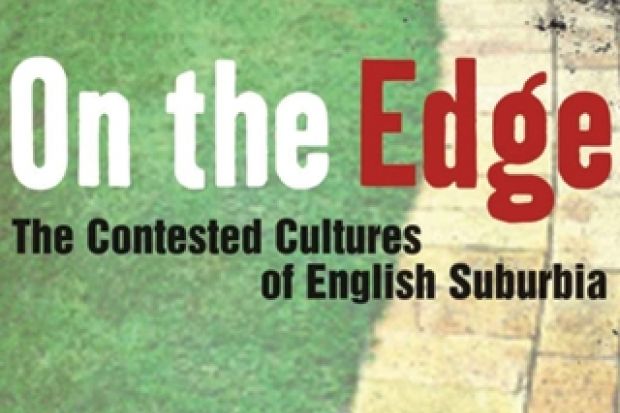This is the end…my beautiful friend…” Jim Morrison’s voice filters through the thin walls of my Travelodge suite as the lorries rumble along the M25 into the dark heart of suburbia.
This is going to be a tough one. My department head, Professor Fudd, laid it on the line. My target is a rising star of the academy, going through basic training and straight into the toughest assignment, facing up to the Goths and New Romantics who infested the clubs and wine bars of the capital. Rupa Huq was bound for big things. But now she is going her own way, making up her own missions, rumoured to be leading a group of retro- skinheads and holding “raves” in the abandoned factories on the fringe of the world we still control.
“It seems like she’s holding these contests…between the cultures around our periphery,” Fudd mused. “Suburbia used to be a place we could handle. You could walk around and the only sound would be the click of garden shears and the clack of a rusty lawnmower. We need to get these people back under control.
“Germinate. With extreme prejudice.” Harrison Fudd clenched his jaw and posed against the thin sunlight filtering through the window of his office. He tossed a battered file across the desk. “This is what we’re dealing with…”
As I study the file and bang on the wall to stop Morrison’s caterwauling, a Huey hovers overhead. It is Huq’s last report, filed as the shopping malls mutate into seething zones of transition, and the last of the Neighbourhood Watch committees fall under the sway of the global corporations. The details are grim.
The suburbs of John Betjeman and The Good Life are history, Huq says here. What used to be middle-class enclaves are now filled with groups from many different cultural backgrounds. The burbs are the new cockpits of political contention, with left and right wooing the would-be bourgeoisie in “at-home” sessions and selective embrace of cultural unity and ethnic diversity. Huq - former deputy mayoress of Ealing and parliamentary candidate for Labour - had penetrated to the heart of one group, rising to a leadership role, but she sees that all politicians face a double bind: the flight of the strivers to the suburbs is accompanied by a corrosion of those areas’ traditional characteristics of comfortable affluence and security. Mainstream politicians insist that “We’re all in this together”, but as Huq points out, this has not quelled the tumult from discordant groups refusing to lie back down and think of the country. Ferment bubbles around factions protesting all kinds of change, with the dismantling of institutions associated with the old suburban order, and the rise of diverse religions, consumer cultures and political activism.
Time to “rethink” suburbia, then, as class melts down in the face of “ethnic diversity and economic insecurity”, but with no ready solution on offer. The book’s final pages are a meditation on the ferment of suburban life, as Joni Mitchell’s appropriation of Henri “Le Douanier” Rousseau and the drums of the Burundi contend with synthesisers to conjure the cultural bricolage of the metropolis.
I gaze out into the gathering darkness as the lorries rumble into William Cobbett’s Great Wen. Maybe there is another way to deal with the problems of the suburbs, but Huq hasn’t found it yet. There is something missing: the multitude, the global flows transforming the suburbs, are just one part of the picture. I sling my suitcase on to the back of my Harley and point it north. Maybe there’s another life up there…maybe not.
On the Edge: The Contested Cultures of English Suburbia
By Rupa Huq
Lawrence & Wishart, 224pp, £15.99
ISBN 9781907103728
Published 4 February 2013
Register to continue
Why register?
- Registration is free and only takes a moment
- Once registered, you can read 3 articles a month
- Sign up for our newsletter
Subscribe
Or subscribe for unlimited access to:
- Unlimited access to news, views, insights & reviews
- Digital editions
- Digital access to THE’s university and college rankings analysis
Already registered or a current subscriber?




